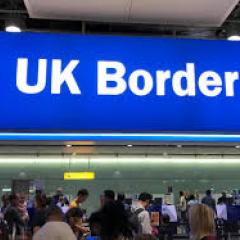A powerful nor'easter storm is forecast to develop off the eastern coast of the US, spreading disruptive weather to portions of the Mid-Atlantic and New England regions March 2-3. The system will produce heavy rainfall, strong winds, flash flooding, and coastal flooding as it strengthens offshore starting early March 2. Widespread rainfall totals of 2.5-5 cm (1-2 inches) are expected along the I-95 corridor from Washington, DC, to Boston, Mass.; higher localized totals are possible, particularly in coastal areas. Areal flooding should not be a major issue; however, flash flooding and localized ponding on roads are possible. Low-lying routes in areas of poor drainage are most likely to experience flooding. Rain could transition to snow for a brief time in southern New England as the system moves away from the coast. The timing of the precipitation changeover will be crucial to any potential snowfall accumulations; current forecast models indicate that, generally, less than 7.5 cm (3 inches) of snow is likely in Massachusetts, Rhode Island, and Connecticut. The National Weather Service (NWS) has issued winter storm watches and flash flood watches for several counties in the northeastern US.
The storm will produce moderate-to-major coastal flooding along portions of the Atlantic seaboard. Persistent onshore flow over multiple tide cycles could raise sea levels 0.6-1.5 meters (2-5 feet) above normal through the evening of March 3. The most significant coastal flooding is likely in eastern Massachusetts, including Nantucket and Martha's Vineyard. Officials in some vulnerable communities in Massachusetts are urging residents to evacuate ahead of the storm. Coastal flood watches and warnings are in effect from Virginia Beach, Virginia, to Portland, Maine.
Strong winds will affect a widespread area with the storm. The NWS has issued high wind watches and warnings for parts of Maine, Massachusetts, Rhode Island, Connecticut, New York, New Jersey, southern Pennsylvania, Delaware, Maryland, Virginia, and the Washington, DC area. Sustained winds of 40-64 kph (25-40 mph), with gusts of 97-113 kph (60-70 mph) are likely, with the strongest winds expected in coastal areas of southern New England and the Mid-Atlantic region. Some property damage and widespread power outages are likely throughout the affected area.
Transport
The disruptive weather will likely cause significant ground and air transport disruptions throughout the eastern US through March 3. Heavy rainfall could reduce visibility and cause traffic delays on area highways, including along the I-64, I-66, I-76, I-78, I-80, I-81, I-87, I-90, I-91, I-93, and I-95 corridors. Storm surge and high waves will likely prompt road and bridge closures in coastal areas throughout the affected area. Strong winds will pose a hazard to traffic, especially high-profile vehicles.
Gusty winds will also contribute to widespread flight disruptions at regional airports, including - but not limited to - those serving Baltimore (BWI), Boston (BOS), New York City (JFK, LGA, EWR), Philadelphia (PHL), Providence (PVD), Richmond (RIC), and Washington, DC (IAD, DCA). Several air carriers are waiving change fees for flights in the northeastern US, March 2-3.
Rough seas and strong winds could also disrupt maritime traffic along the Atlantic coastline through March 3; inter-island ferry services could be suspended in New England.
Further assistance
Campus Travel can be contacted 24/7, 365 days a year.
Number: +61 7 3393 8855 (calls from overseas)
Number: 1300 662 703 (calls from within Australia)
Email: uq@campustravel.com.au
If you require emergency assistance while travelling, please contact Chubb Insurance Assistance. The contact details are listed below:
Travel emergency 24/7 contact
Chubb Assistance phone +61 2 8907 5995 and quote UQ policy number 01PP529201. Reverse phone charge is available.



